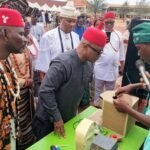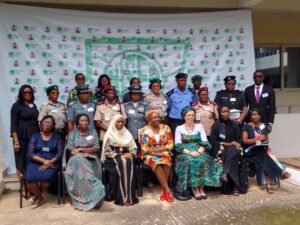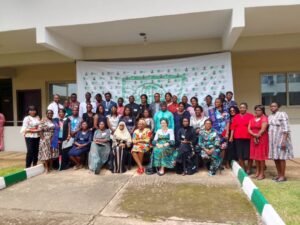Anti-corruption: NISER DG, others call for gender inclusiveness approach
By Olatunde Ajayi
The Director-General of the Nigerian Institute of Social and Economic Research (NISER), Professor Antonia Simbine, has underscored the importance of adopting a gender-inclusive approach in the fight against corruption.
Speaking at the Actualizing Behaviour Change (ABC) Series in Ibadan, Simbine emphasised that the previous one-size-fits-all solutions to corruption have been unsuccessful due to their failure to consider the gender dynamics of corrupt behavior.
The ABC Series, a collaborative project between NISER and the MacArthur Foundation, focuses on “Research Support for Corruption Control through Behaviour Change.” The latest installment, “A Gender-Lensed View of Citizens’ Lived Experiences of Corrupt Behaviour in Nigeria,” highlights the need for a gendered perspective in anti-corruption efforts.
“In the previous series, we have been looking at all aspects of corruption issues, behavioural aspects of corruption.
“Now, we are considering how it relates to women and men differently, but much more with regards to women; all toward finding solutions for corruption,” she said.
Simbine argued that anti-corruption agencies must adopt a gender-sensitive approach to address the different ways men and women experience and engage in corrupt practices.
“The second aspect is that, in the programmes of anti-corruption agencies, they need to now understand the various aspects of behaviour or reaction of people to the issue of corruption and then target their programmes in that direction.
“They must be able to analyse what a corrupt man or woman does, how they do it, what pushed them to do it, what is their reaction, and then we may be saying we are fighting corruption,” she said.
Dr. Temitayo Adeyemo, a lecturer at the University of Ibadan, presented research showing that women’s experiences of corruption differ significantly from those of men when interacting with government agencies.
She called for gender mainstreaming in corruption control policies and institutional structures to ensure effective anti-corruption campaigns.
“We must incorporate gendered themes in the corruption campaign to enable voicing out for the vulnerable victims,” she said.
Dr. Safiya Ahmad-Nuhu, Director of the Centre for Gender Studies at Bayero University, Kano, emphasised that corruption is a cross-cutting issue that affects development and requires a gender-inclusive approach.
She stressed the importance of incorporating gendered themes in anti-corruption campaigns and considering women’s roles in achieving sustainable development goals.
“There are different experiences of men and women about corrupt practices but at the core of it, is a governance issue that affects development.
“Gender inclusion is a critical issue for sustainable development. As a nation, working toward the discussion on sustainable development cannot be done in rhetoric.
“If the country really wants to move forward, we need to consider all the various components of the SDGs in terms of where women fit.
“It is not just in respect of a particular issue, but all the 17 goals; women’s role in those goals has to be included,” she said.
The ABC platform provides a forum for scholars, policymakers, and practitioners to engage in debate and idea-sharing, facilitating a multidisciplinary approach to addressing corruption.












